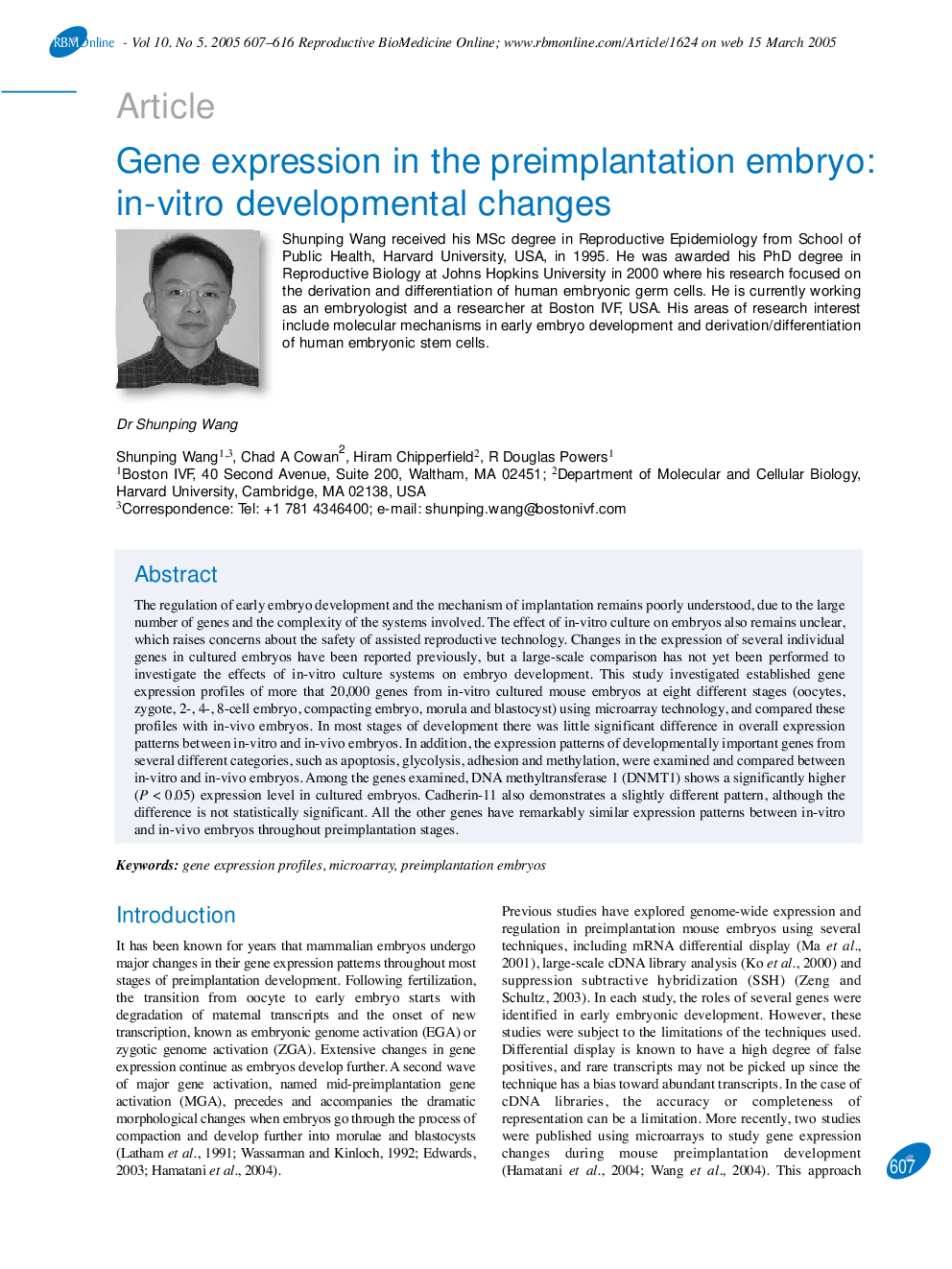| Article ID | Journal | Published Year | Pages | File Type |
|---|---|---|---|---|
| 9335331 | Reproductive BioMedicine Online | 2005 | 10 Pages |
Abstract
The regulation of early embryo development and the mechanism of implantation remains poorly understood, due to the large number of genes and the complexity of the systems involved. The effect of in-vitro culture on embryos also remains unclear, which raises concerns about the safety of assisted reproductive technology. Changes in the expression of several individual genes in cultured embryos have been reported previously, but a large-scale comparison has not yet been performed to investigate the effects of in-vitro culture systems on embryo development. This study investigated established gene expression profiles of more that 20,000 genes from in-vitro cultured mouse embryos at eight different stages (oocytes, zygote, 2-, 4-, 8-cell embryo, compacting embryo, morula and blastocyst) using microarray technology, and compared these profiles with in-vivo embryos. In most stages of development there was little significant difference in overall expression patterns between in-vitro and in-vivo embryos. In addition, the expression patterns of developmentally important genes from several different categories, such as apoptosis, glycolysis, adhesion and methylation, were examined and compared between in-vitro and in-vivo embryos. Among the genes examined, DNA methyltransferase 1 (DNMT1) shows a significantly higher (P < 0.05) expression level in cultured embryos. Cadherin-11 also demonstrates a slightly different pattern, although the difference is not statistically significant. All the other genes have remarkably similar expression patterns between in-vitro and in-vivo embryos throughout preimplantation stages.
Related Topics
Health Sciences
Medicine and Dentistry
Obstetrics, Gynecology and Women's Health
Authors
Shunping Wang, Chad A Cowan, Hiram Chipperfield, R Douglas Powers,
